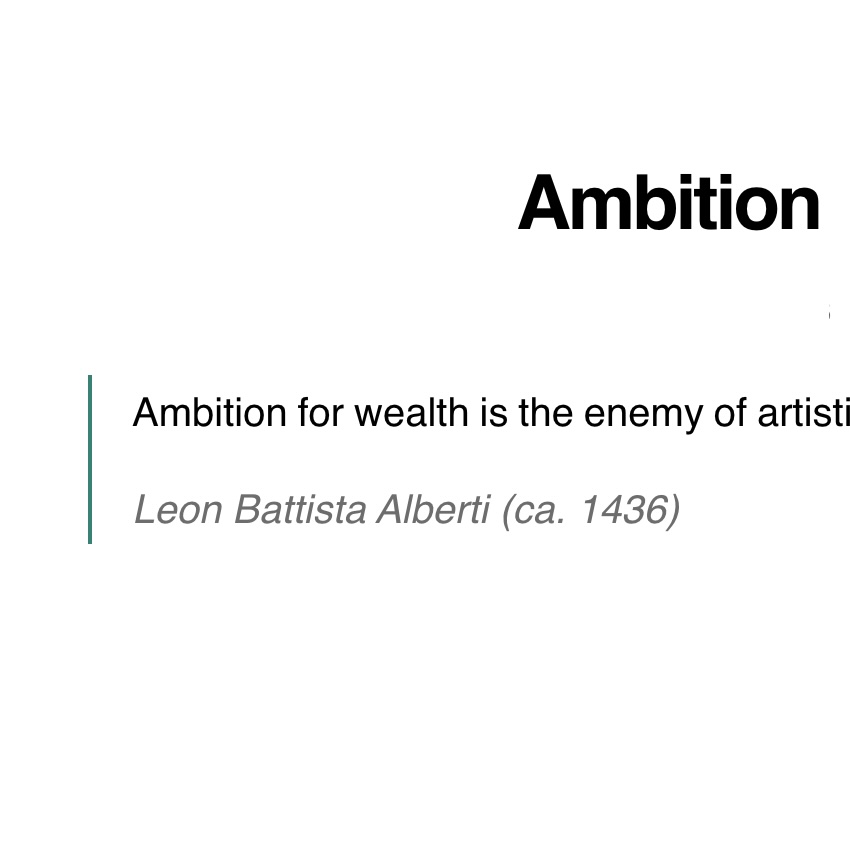You need a concrete goal, as well. The longer you keep to these basics, the easier the act of writing will become. Don’t wait for the muse. As I’ve said, he’s a hardheaded guy who’s not susceptible to a lot of creative fluttering. This isn’t the Ouija board or the spirit-world we’re talking about here, but just another job like laying pipe or driving long-haul trucks. Your job is to make sure the muse knows where you’re going to be every day from nine ’til noon or seven ’til three. If he does know, I assure you that sooner or later he’ll start showing up, chomping his cigar and making his magic.
S. King, On Writing, 157
Tag: Quotation of the Week
-
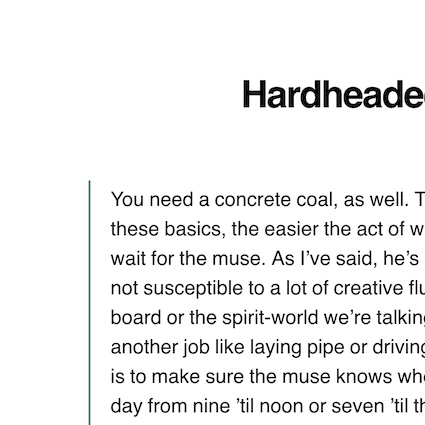
Hardheaded guy
-
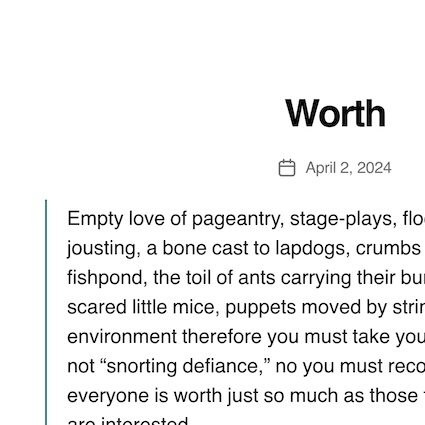
Worth
Empty love of pageantry, stage-plays, flocks and herds, jousting, a bone cast to lapdogs, crumbs thrown into a fishpond, the toil of ants carrying their burdens, skurryings of scared little mice, puppets moved by strings: amid such environment therefore you must take your place graciously and not “snorting defiance,” no you must recognize the fact that everyone is worth just so much as those things in which they are interested.
M. Aurelius, Meditations, VII.3 (adapted from the Loeb edition) -
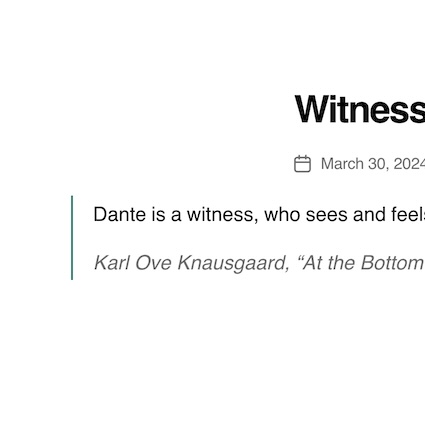
Witness
Dante is a witness, who sees and feels on behalf of the reader
Karl Ove Knausgaard, “At the Bottom of the Universe,” 152 -
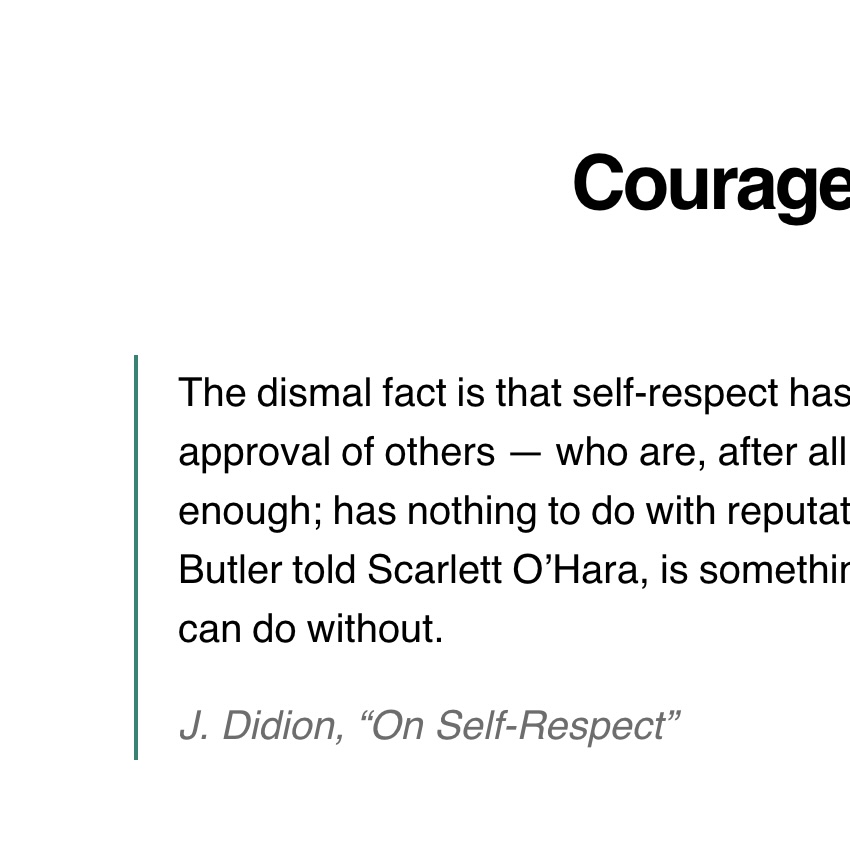
Courage
The dismal fact is that self-respect has nothing to do with the approval of others — who are, after all, deceived easily enough; has nothing to do with reputation, which, as Rhett Butler told Scarlett O’Hara, is something people with courage can do without.
J. Didion, “On Self-Respect” -
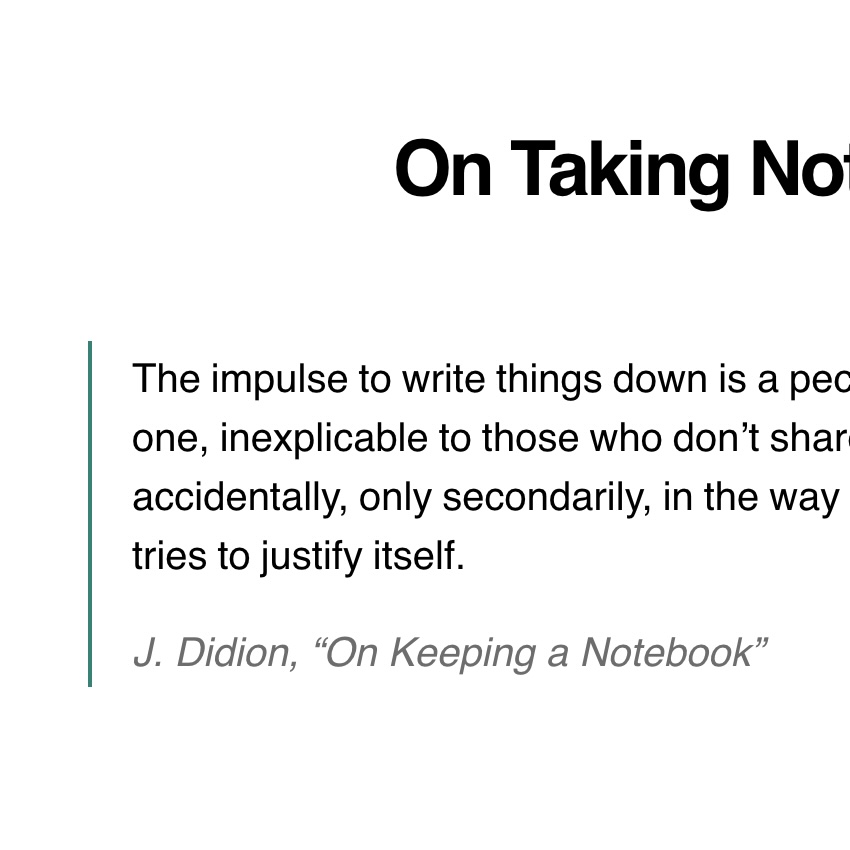
On Taking Notes
The impulse to write things down is a peculiarly compulsive one, inexplicable to those who don’t share it, useful only accidentally, only secondarily, in the way that any compulsion tries to justify itself.
J. Didion, “On Keeping a Notebook” -
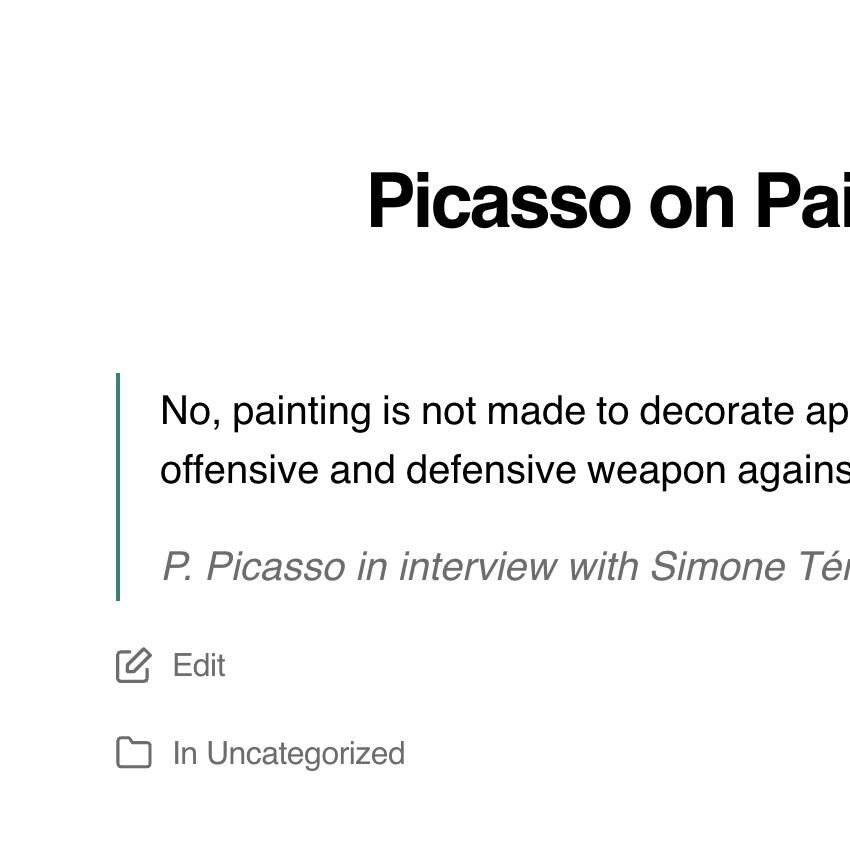
On Painting
No, painting is not made to decorate apartments. It’s an offensive and defensive weapon against the enemy.
P. Picasso in interview with Simone Téry, March 24, 1945. -
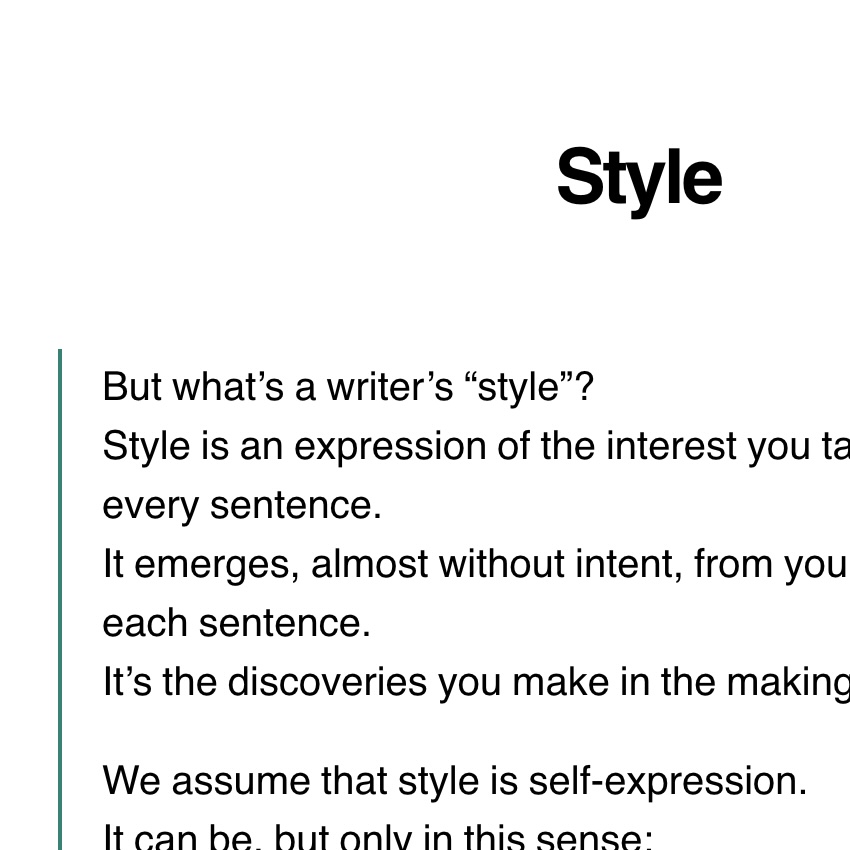
Style
But what’s a writer’s “style”?
Style is an expression of the interest you take in the making of every sentence.
It emerges, almost without intent, from your engagement with each sentence.
It’s the discoveries you make in the making of the prose itself.We assume that style is self-expression.
It can be, but only in this sense:
It’s the fusion of your command of language and your commitment to your own intent,
Even as your intent shifts under the weight and opportunity
Of the discoveries you make as you work,
Discoveries that are linguistic, conceptual, structural, imaginative.This doesn’t sound like a useful or conventional definition of style
V. Klinkenborg, Several Short Sentences about Writing, 84–85
Or much like self-expression.
But it does clarify an important thought:
“Style” shouldn’t linger in your awareness.
You don’t need to think about style. -
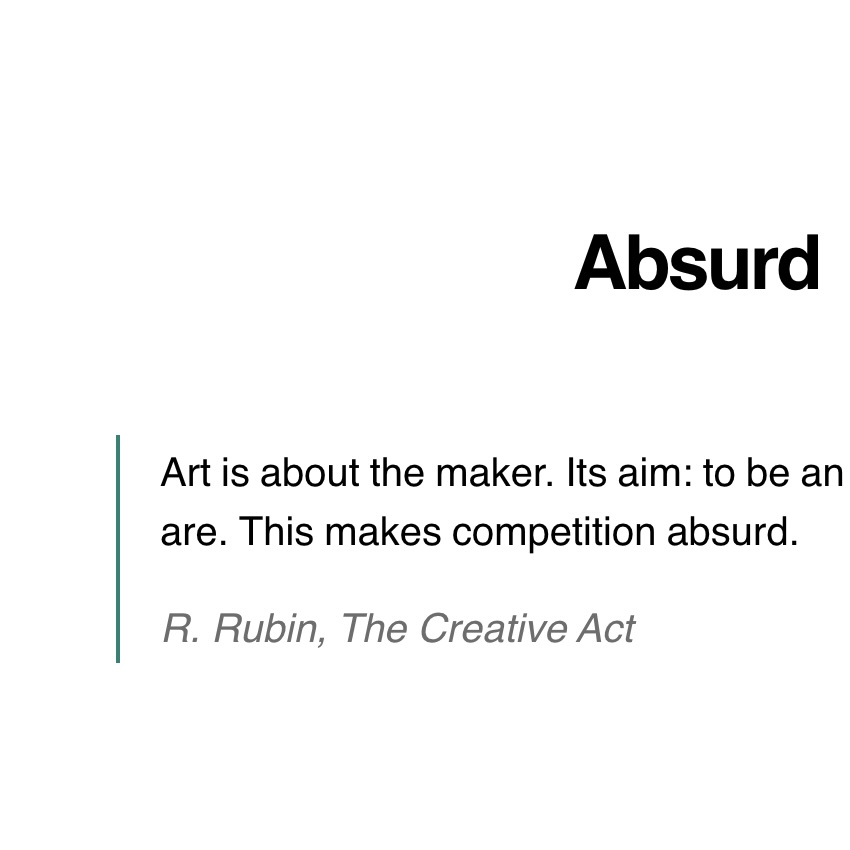
Absurd
Art is about the maker. Its aim: to be an expression of who we are. This makes competition absurd.
R. Rubin, The Creative Act -
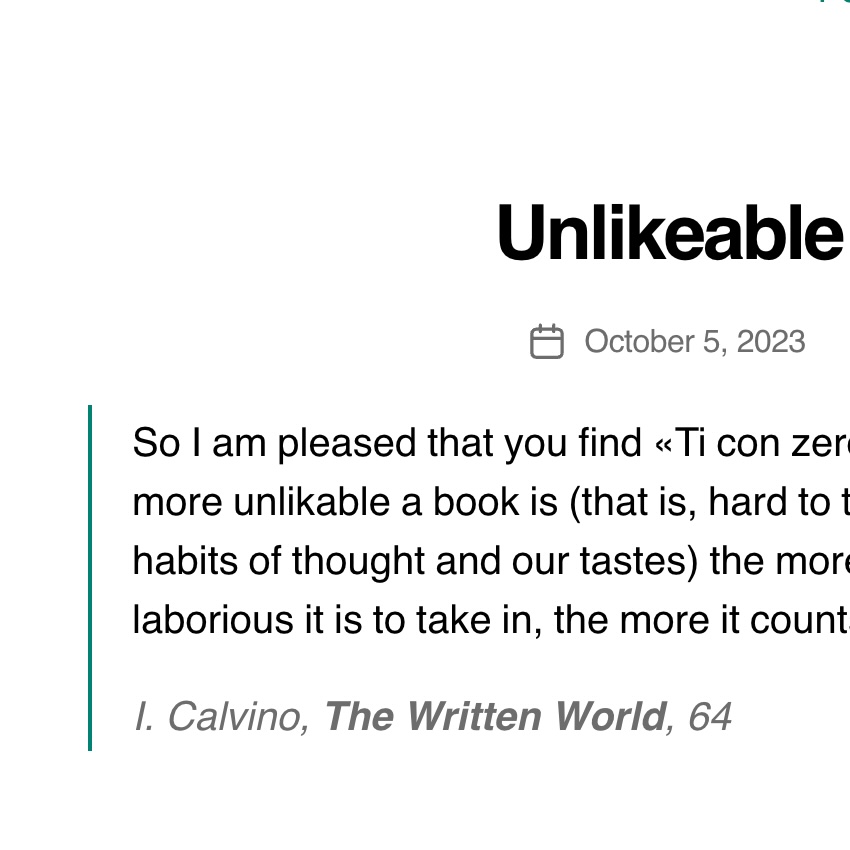
Unlikable
So I am pleased that you find «Ti con zero» “likable”; but the more unlikable a book is (that is, hard to take in, because of our habits of thought and our tastes) the more it counts; the more laborious it is to take in, the more it counts
I. Calvino, The Written World, 64
